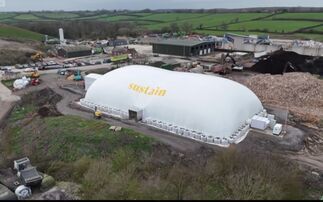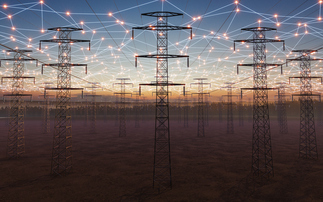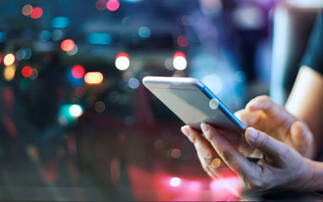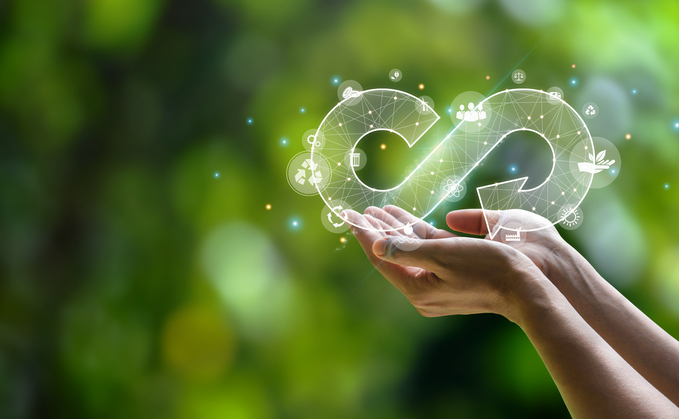
Industry Voice: On World Environment Day, Vodafone’s Nicki Lyons explores how Vodafone UK is moving towards a circular economy.
World Environment Day presents an opportunity for all of us to take stock of how we can protect and preserve our planet. It certainly prompts me to consider what power I have to make a difference, both personally and professionally.
This year's focus on plastics - reducing plastic pollution, limiting waste and moving towards a circular economy - resonates with all of us at Vodafone UK.
The good news is we've already removed 100 tonnes of plastic packaging from deliveries to our customers - just one example of how we're reducing waste and promoting a circular economy . There are several more examples below.
Circular purpose
Our purpose is to ‘connect for a better future'. We all want to ensure everyone benefits from the opportunities that digital technology provides - while reducing the impact of our business on the planet.
We're striving to reach Net Zero carbon emissions for our UK operations by 2027, and to be fully Net Zero across the Group by 2040. We're also enabling our customers to reduce their own emissions using a suite of technologies, such as Internet of Things (IoT), cloud computing, and full 5G (which, when fully implemented will deliver considerable energy savings compared to 3G and 4G).
And crucially, we're committed to promoting a circular economy. The telco sector, its customers and suppliers, produces waste just like most other parts of society, and we urgently need to reduce the impact this has on our environment.
Vodafone's main sources of e-waste are our own network equipment and the devices we provide to businesses and consumers. On the former, we're already reusing, reselling or recycling 96% of our waste network equipment. In the last year we avoided nearly 1,500 tonnes CO2e (carboncdioxide equivalent) by re-using equipment across our UK sites.
Our international Asset Marketplace is a digital platform for sharing kit between our businesses that allows us to reuse and re-sell excess stock or decommissioned items like masts and antennas. In the year to 31 March 2023, Asset Marketplace saved us more than £12.5m of spend and avoided more than 1,100 tonnes of CO2e.
When it comes to the devices and phones we sell to customers, our approach is three-fold. Our first priority is extending the life of devices. We want people to keep using brilliant technology for longer. That's why our EVO 36-month consumer plan, for example, includes battery refresh for up to three years and a two-year total care warranty.
Our next focus is on reusing working devices. Refurbished phones are better for the planet but still affordable and high quality. Our job is to make them more easily available for our customers as this is key to us - and the telco sector as whole - becoming a more sustainable and circular industry.
I'm proud to say that Vodafone is currently the only major UK network to offer a two-year warranty with every refurbished Pay Monthly phone; and we also offer a device leasing scheme for businesses.
Customers welcome this - refurb is on the rise. We recently found that 24% of Brits are looking to get their hands on a refurbished phone and searches for refurbished devices are up by 39%. We extended our range earlier in the year to meet growing demand.
We'd love to see others follow our lead.
Social value
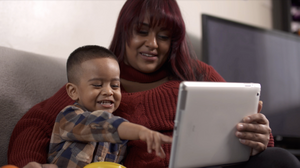
Happily, refurbished devices also help us deliver social good as well as deliver for the planet. Through our Great British Tech Appeal campaign we've partnered with Barnardo's and Good Things Foundation to donate pre-loved tech to people who really need it. Tackling the digital divide is also one of our core purposes as a company.
We encourage customers - businesses and consumers - to donate devices they no longer need, and we include free data, calls and texts when we pass them on. So far, with the help of our charity partners, we've distributed more than 13,000 devices. It's a win-win - socially and environmentally.
As a last resort, we also recycle unwanted devices responsibly, offering in-store collection points as well as a simple online process. Working in line with the Waste Electrical and Electronic Equipment (WEEE) regulations, this ensures that any valuable components are extracted for reuse.
Refresh, reuse, recycle: the three ways we can reduce waste and have the greatest impact.
The power of partnerships
No one company can solve this complex environmental issue alone, so we're grateful for the help of expert organisations. Partnerships are crucially important, as our
everyone.connected campaign has already demonstrated. Working with charity partners, including the Trussell Trust, Good Things Foundation, and Barnardo's - we've already helped more than a million people cross the digital divide, and we're aiming to increase this number to four million by the end of 2025.
Partners are equally important in pursuit of our circular economy plans. For example, in November 2022, Vodafone and WWF formed a three-year global strategic partnership, kicking off with an initial ‘one million phones for the planet' campaign. Every phone collected will see £1, or the local equivalent, donated by Vodafone to WWF conservation projects across the world. It will drive awareness of e-waste and incentivise our customers in the UK, Europe and Africa to trade in or donate unwanted devices to be refurbished and sold, used for social causes, or recycled responsibly.
We know people across the world recognise WWF as one of the most credible non-governmental organisations (NGOs) in the sustainability space.
This partnership marries Vodafone's global reach with WWF's expertise in sustainability to drive change in consumer behaviour and accelerate our circular economy strategy.
Circular evolution
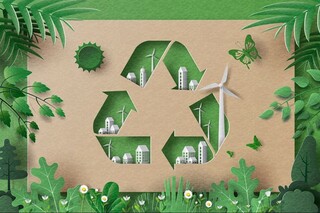
We're developing a better understanding of the reasons why people engage with the circular economy - whether that's affordability, convenience or social good - and building those learnings into our products and services.
So our circular economy strategy is evolving as we learn more - about the main causes of e-waste; the barriers to a circular economy; and what change in behaviour we need to see and encourage to make a real difference.
I firmly believe that by making it easier for customers, partners and suppliers to become a part of the circular economy, we can drive real change, together.
Nicki Lyons is Chief corporate affairs & sustainability officer at Vodafone UK.
This article is sponsored by Vodafone.



